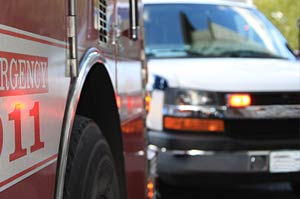 There are many different modes of transportation in the U.S., including passenger vehicles, trains, subways, buses, airplanes, and passenger vans. Oftentimes, buses are the chosen mode of transportation for churches and organizations conducting tours, day trips, or weekend trips, but if the group is small, they may opt for a 12- or 15-passenger van.
There are many different modes of transportation in the U.S., including passenger vehicles, trains, subways, buses, airplanes, and passenger vans. Oftentimes, buses are the chosen mode of transportation for churches and organizations conducting tours, day trips, or weekend trips, but if the group is small, they may opt for a 12- or 15-passenger van.
Passenger vans are large vans containing five rows of seats and can accommodate up to 12 or 15 people, including the driver. They are regularly used by churches, colleges, airports, resorts and hotels, tour and travel agencies, daycare and eldercare centers, and other organizations. Though they are frequently used, they are very hazardous vehicles and increase the risk of a Maryland auto accident.
What makes passenger vans dangerous?
Passenger vans are quite different from other small passenger vehicles, such as 4-door sedans, as well as larger passenger vehicles, such as buses. They are not considered to be a passenger car or a bus and are not built the same way, nor are they required to meet the same standards as school buses.
Originally manufactured to transport cargo, passenger vans were never completely redesigned to safely transport people. They are wider, taller, and longer than smaller passenger vehicles and require more space, heavier reliance on side mirrors in order to change lanes, longer braking distances, and are at a higher risk of crashes, especially rollovers.
Drivers who are unaccustomed to making accommodations for these differences are more likely to cause accidents that injure both their own passengers and others on the highway.
.
Government Warnings About Passenger Vans
The National Highway Traffic Safety Administration has issued multiple warnings on the rollover risks of passenger vans.
In addition to the warning about the importance of driver experience, NHTSA has cautioned that properly inflated tires will help prevent rollover crashes. They estimate that 30 percent of 15-passenger vans have at least one tire that is under-inflated by 8 psi or more. The agency urges owners and users of passenger vans to make certain they have appropriately-sized and load-rated tires and to ensure that they are properly inflated before every trip. Because tires degrade over time, even if the vehicle is not driven frequently, NHTSA recommends that spare tires not be used as replacements for worn tires. In fact, their advisory says tires more than 10 years old should not be used at all.
Another factor that influences the likelihood of a van rollover is weight distribution and loading of cargo. No more than 15 people, including the driver, should be transported in a 15-passenger van. NHTSA research shows that when there are 10 or more occupants in a 15-passenger van, the rollover rate in a single-vehicle crash is nearly three times as high as that of a van carrying fewer than five occupants.
If the van is not full, passengers should be told to sit in seats that are in front of the rear axle – and, of course, they should wear seat belts. Most people know that they should buckle up in any type of vehicle, whether it is the family car or the church van, or even an airplane. But NHTSA reports that 88 percent of people killed in rollover crashes in 15-passenger vans were not wearing their seat belts.
If any cargo is being transported, it should be placed forward of the rear axle, and vans should never tow a trailer or anything else. Roof-top luggage racks should not be used because they increase the likelihood that the vehicle could topple over on a turn.
Preventing Fatalities in Van Accidents
Because of the significant increase in rollover risk of a fully loaded van, NHTSA now requires that electronic stability control (ESC) systems be incorporated in all new 15-passenger vans. Older vans, of course, do not have this type of preventive technology and require experience and diligence on the part of their drivers.
In addition to ESC, antilock brakes and front-row airbags are now standard on all 15-passenger vans, and side-curtain airbags and laminated glass windows are available as well. The side-curtain airbags protect occupants in the first three rows of seating during side impacts and help prevent ejection. Reinforced glass, which resists breaking, can prevent ejection of passengers in the fourth and fifth rows.
Common Injuries in Passenger Van Accidents
When a passenger van is involved in a rollover accident, its occupants are likely to suffer catastrophic harm — injuries that could result in rapidly mounting medical bills and require a lengthy recovery time. Such injuries could include:
- Deep lacerations (cuts) and severe contusions (bruising)
- Damage to major organs
- Head injuries, including concussion and traumatic brain injury (TBI)
- Facial injuries, which may include eye damage and loss of vision
- Dental trauma
- Bone fractures
- Spinal cord injuries, leading to paralysis or loss of function.
The survivor of a van rollover could be out of work for several weeks, adding to the family’s stress as they try to deal with the household and medical bills, loss of income and their changed lifestyle.
Who can help after a Maryland van accident?
Steve Heisler, The Injury Lawyer, has been assisting those injured in van accidents for decades, whether the accident occurred in Maryland or the District of Columbia. He believes victims of negligence or defective design deserve to be compensated for their losses.
Demonstrating that an automobile, truck or passenger van is defective requires time and resources. It also requires the depth of knowledge Steve Heisler, a respected Baltimore truck accident lawyer, has accumulated about accident investigation, collection and preservation of evidence, and working with expert witnesses to present a convincing case.
When an accident was caused by the negligence of the vehicle’s driver, or inadequate maintenance by the vehicle’s owner, Steve’s commitment to advocating for the rights of his injured clients is unwavering.
If you or a loved one has been injured in a van accident, or if you have lost a loved one in a fatal wreck, call the Law Offices of Steven H. Heisler at (410) 625-4878 and get started on the process that will get the compensation you deserve.

Attorney Steve Heisler
Steve Heisler decided in 1996 that he was going to focus his law practice exclusively on injury cases. Since then, he has been representing injured people against insurance companies, disreputable medical practitioners and Big Pharma, and doing it with compassion, honesty and level-headed rationality. [ Attorney Bio ]


